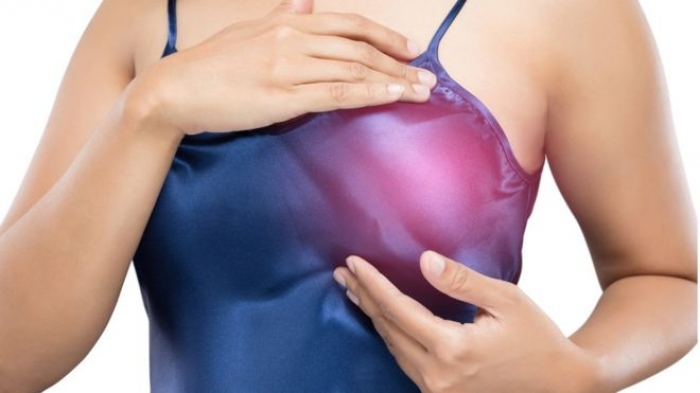The research found these women were also less confident about their ability to detect a change in their breasts and slower to see a doctor if they did detect a change.
Inspecting their breasts "may trigger negative emotions, such as shame and embarrassment", the researchers said.
Most of the women surveyed had some degree of dissatisfaction with their breast size:
A third admitted they rarely or never engaged in breast self-examination.
The NHS advises women to make sure they know how their breasts usually look and feel at different times of the month, so they are aware of any changes.
Breast cancer is the most common cancer in the UK, with more than 55,000 women diagnosed every year.
Of the women surveyed, 55% said they would see their doctor as soon as possible if they detected a change in their breasts.
However, one in 10 admitted they would delay for as long as possible or not see their doctor at all.
Breast cancers detected early are usually easier to treat and more likely to be cured.
Prof Viren Swami, of Anglia Ruskin University, who conducted the research, said: "For women who are dissatisfied with their breast size, having to inspect their breasts may be experienced as a threat to their body image and so they may engage in avoidance behaviours.
"Promoting greater breast awareness may be a useful means of helping women view their breasts in more functional terms, rather than purely aesthetic terms."
Dany Bell, from Macmillan Cancer Support, said: "Feeling unhappy with your body mustn't prevent people from making these vital checks.
"A breast lump is the most common symptom of breast cancer, so checking regularly could mean catching it earlier."
He said it was important that both men and women performed these self-examinations.
Sophia Lowes, from Cancer Research UK, said the study "didn't consider other factors such as social background that might affect whether they get breast changes checked out".
She said it was important women were aware of what their breasts normally looked and felt like, so they were more likely to notice any changes.
"If you do spot something unusual, tell your doctor," she said.
"In most cases, it won't be cancer - but if it is, finding it early can make a real difference."
More about: #health










-1745485667.jpg&h=190&w=280&zc=1&q=100)





































